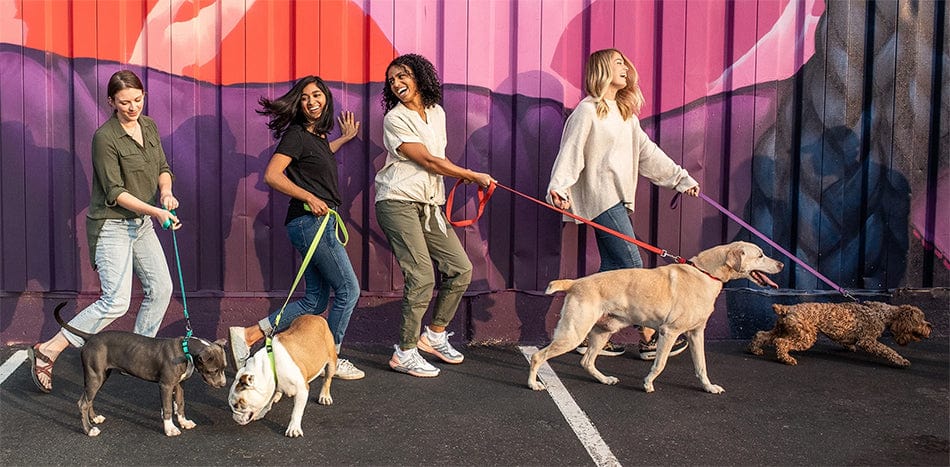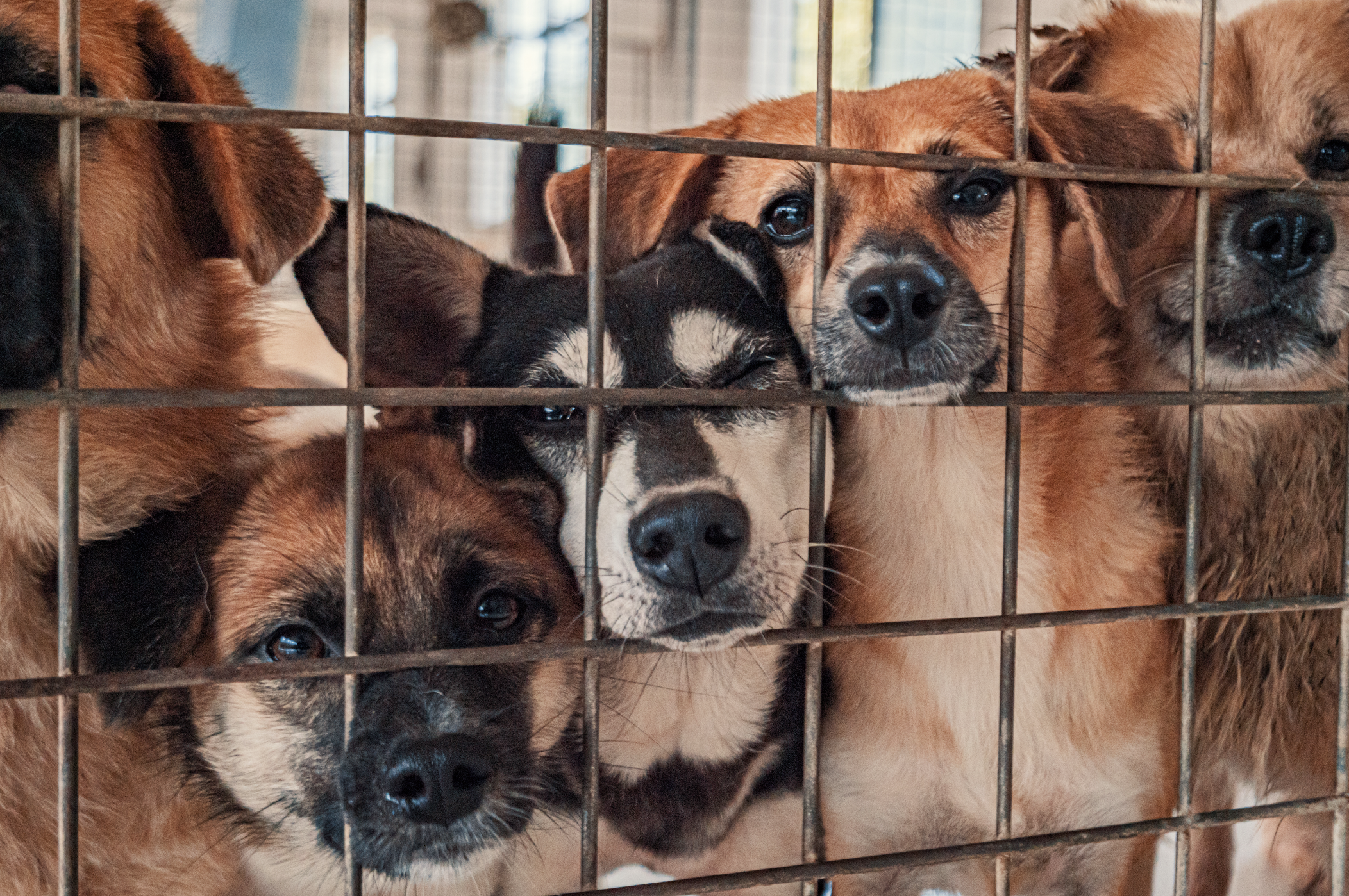Your cart is empty. Let's fix that!


Bringing home a new dog is exciting—but the transition from an animal shelter to your home can be tricky for a rescue dog. It’s up to you to help them feel comfortable as you welcome them home!
Whether you’re flirting with the idea of adopting a rescue dog, falling in love with pups on your local shelter’s Instagram, or just waiting for the adoption paperwork to be approved, now is a good time to think about how to get ready for your new addition!
The first thing you need to do is set realistic expectations for what will happen when you bring your dog home. While we all hope that our new pups will immediately feel safe and happy with us, the truth is that adopting a pet is a lot like adopting a child. You and your new family member will go through a long transition period as you get used to your new life together!
The most common phases of rescuing a dog are:
Just like with any new relationship, you’ll enter the honeymoon phase when you first adopt a dog. This phase is often characterized by extremely good behavior as your dog is minding their manners in this new and unsettling situation. Unfortunately, it can also be the exact opposite as a fearful dog may act out as they try to find their place in an intimidating new home. The rescue dog honeymoon period typically lasts for 2-4 weeks after bringing your rescue dog home.
As your pup gets used to their new home and new people, they’ll begin to show their actual personality! This is when you’ll get to know all their good and bad habits and all the little quirks that make them unique. While you get to know them, they’re also learning what you’re like and what you expect from them. This getting-to-know-you period can last for weeks or months.
When your dog finally gets comfortable with you, their home, and your daily routine, they enter the settlement period. This is when you finally see what the rest of your life together will look like as you settle into a comfortable rhythm and relationship.
Having everything and everyone ready to welcome your furry friend will make their first days and weeks in their new home much easier. Here’s how to help your rescue dog settle in:
Make sure you have everything you need for your dog to be happy in their new home! That means food and treats (consider checking with the shelter to see what they eat currently and slowly switching to their new food), food and water bowls, a collar and leash, pet tags, a dog bed and/or crate, and sturdy toys (until you know how tough of a chewer they are). This includes the supplies you should bring when adopting a dog like a good leash and some treats to make the experience pleasant.
It might be tempting to do all the fun stuff you’ve been dreaming of doing with your new dog as soon as they get home, but they need time to adjust and get comfortable with the basics before branching out. Wait to bring your new dog to the dog park or introduce them to friends and family until they’re comfortable at home with you.
Entering a new environment can be overwhelming and showing your dog that they have a safe and comfortable place to retreat to can help them feel secure. Set up a snuggly dog bed or cozy crate if you’re planning on crate training your dog and add some toys—even better if you can add a toy or blanket from the shelter with their scent on it. Having this space will help with settling your rescue dog at night or any time they need a little space.
If possible, schedule your dog’s arrival for a period of time when you can stay home with them for a few days. You want to provide as much supervision as possible as they learn the rules of their new home!
When you do have to start leaving them alone, make sure you thoroughly dog proof your home. Many shelter pets may experience separation anxiety that can lead to unpredictable behavior in your absence. You may want to consider closing doors or setting up a baby gate to contain them in dog-safe areas of your home while you’re gone until you know how they’ll behave.
Even potty-trained dogs may have some unusual accidents when they arrive in a new home. Whether it’s related to fear, anxiety, a switch in their diet, or a change in their routine, accidents are common with new dogs. Make sure to provide regular bathroom breaks as you get to know their needs, have cleaning supplies on hand, and don’t punish them for any mistakes as they’re learning to feel safe and comfortable in their new home.
Dogs thrive with a daily routine, and that stability is especially helpful during periods of change. The sooner your dog can learn when to expect food, walks, play, bedtime, and more, the less anxiety they’ll experience as they try to anticipate what comes next. Stay consistent and you’ll start to see that tail wag as the clock ticks down to dinnertime!
We recommend using positive reinforcement training techniques at all times, but it’s particularly important during the transition period as your dog learns all the new habits and behaviors you expect from them. Yelling at your dog or trying to punish them for what you see as bad behavior during this volatile time can be especially traumatizing and damage your blossoming relationship.
Do your best to ignore any behaviors you’d like to discourage and instead focus on lavishing them with treats, praise, and love for the behaviors you want to encourage. Before long, they’ll be doing their best to seek your approval and show off all the good habits you’ve taught them!
Are you adopting a senior dog? A dog with special needs? A dog who’s experienced trauma? Learn as much as you can about their situation so that you can give them all the physical and emotional support they may need. Getting to know your unique dog is a learning process, and you’ll get better and better at providing for them as you get to know each other.
Welcoming a shelter dog into your home can feel like a rollercoaster ride at first, but with patience, preparation, and a lot of love, you’ll end up with a bond like no other. Pets are family, and they’ll be forever grateful for becoming part of yours.